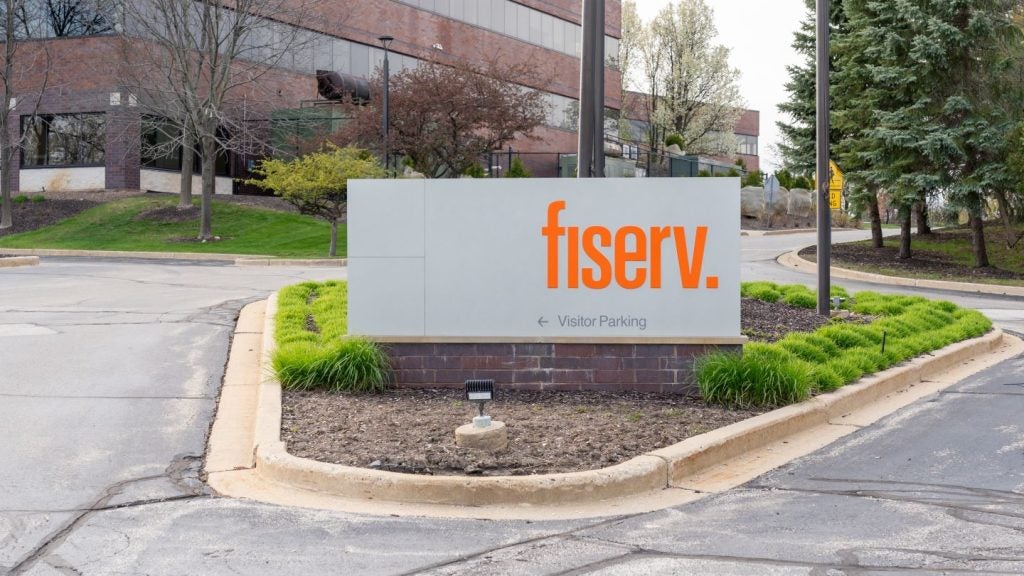Obopay’s mobile payments service has proved a
big hit in its native US. Obopay executive vice-president David
Johnson provided EPI with insight into the company’s strategy to
extend its service internationally, starting with a newly
established unit in India. Charles Davis reports
big hit in its native US. Obopay executive vice-president David
Johnson provided EPI with insight into the company’s strategy to
extend its service internationally, starting with a newly
established unit in India. Charles Davis reports
US mobile payments provider Obopay has made its
first international foray, announcing the launch of an instant
money transfer service in India through an alliance between
wholly-owned subsidiary Obopay India and YES Bank, an Indian
private sector bank.
first international foray, announcing the launch of an instant
money transfer service in India through an alliance between
wholly-owned subsidiary Obopay India and YES Bank, an Indian
private sector bank.
David Johnson, executive vice-president for
international strategy and deployment and CFO, told EPI that
expanding into India is the first step toward becoming an
international remittance service provider. Johnson said that said
the next step is connecting the two systems to let Americans send
funds to India.
international strategy and deployment and CFO, told EPI that
expanding into India is the first step toward becoming an
international remittance service provider. Johnson said that said
the next step is connecting the two systems to let Americans send
funds to India.
“Once we get the domestic [India] Obopay
service in place, we can then work on linking our international
markets,” Johnson said. “We think this is a model we can replicate
in markets all over the world.”
service in place, we can then work on linking our international
markets,” Johnson said. “We think this is a model we can replicate
in markets all over the world.”
California-based Obopay, which has enabled
people to make person-to-person transfers through mobile phones in
the US since 2006, is receiving weekly, if not daily inquiries from
banks all over the world interested in mobile payments. The India
link, expected to be available in the third quarter, would be the
first in a series of international remittance connections, Johnson
said.
people to make person-to-person transfers through mobile phones in
the US since 2006, is receiving weekly, if not daily inquiries from
banks all over the world interested in mobile payments. The India
link, expected to be available in the third quarter, would be the
first in a series of international remittance connections, Johnson
said.
“We are interested in a variety of
international markets, but certainly there are the US-Mexican and
US-Eastern European markets, as well as some Middle Eastern and
African markets that interest us,” he added. “What we are looking
for is a predominantly cash-based society with large numbers of
mobile phones and a regulatory apparatus willing to work with
us.”
international markets, but certainly there are the US-Mexican and
US-Eastern European markets, as well as some Middle Eastern and
African markets that interest us,” he added. “What we are looking
for is a predominantly cash-based society with large numbers of
mobile phones and a regulatory apparatus willing to work with
us.”
Obopay initially focused on US college students
who could use its service, for example, to split restaurant bills,
and on letting parents give children their allowance
electronically. But the company noticed its service had also become
popular with the underbanked, some of whom have their pay cheques
deposited into Obopay accounts and then use transfers to pay their
share of household bills.
who could use its service, for example, to split restaurant bills,
and on letting parents give children their allowance
electronically. But the company noticed its service had also become
popular with the underbanked, some of whom have their pay cheques
deposited into Obopay accounts and then use transfers to pay their
share of household bills.
Obopay’s remittance feature could appeal to
these users, while also finding customers in more traditional
banking-rich societies who wish to use mobile phones to make
payments.
these users, while also finding customers in more traditional
banking-rich societies who wish to use mobile phones to make
payments.
Johnson said his company could flourish in
India, where cash is the dominant payment mechanism even for
business transactions, and that gaining popularity there would be
the first step toward enabling international remittances.
India, where cash is the dominant payment mechanism even for
business transactions, and that gaining popularity there would be
the first step toward enabling international remittances.
With Obopay, YES Bank customers securely and
instantly transfer money to and from any mobile phone number with
Obopay’s mobile application, text message or mobile web. YES Bank
customers can also instantly withdraw cash received using their YES
Bank debit card.
instantly transfer money to and from any mobile phone number with
Obopay’s mobile application, text message or mobile web. YES Bank
customers can also instantly withdraw cash received using their YES
Bank debit card.
The domestic potential for mobile payments in
India is staggering. The nation has 250 million mobile phone users,
and that number is increasing at a rate of 8 million a month,
Johnson said. Another 100 million migrant workers call India home,
meaning the domestic remittance market may be at least as large as
the international opportunity.
India is staggering. The nation has 250 million mobile phone users,
and that number is increasing at a rate of 8 million a month,
Johnson said. Another 100 million migrant workers call India home,
meaning the domestic remittance market may be at least as large as
the international opportunity.
“Think about it this way: the 250 million
mobile phone users in India is a growing number, far from the whole
nation, and that figure already dwarfs the US market,” Johnson
said.
mobile phone users in India is a growing number, far from the whole
nation, and that figure already dwarfs the US market,” Johnson
said.
Obopay users can transfer funds between
accounts at Yes Bank. In the next few weeks users will be able to
initiate transfers to and from accounts at four more Indian banking
companies, Johnson said, and another 20 are lined up to join the
system soon.
accounts at Yes Bank. In the next few weeks users will be able to
initiate transfers to and from accounts at four more Indian banking
companies, Johnson said, and another 20 are lined up to join the
system soon.
India seems ideally suited for mobile payments.
Many unbanked Indians want bank accounts but live in rural areas
where transaction networks are sparse but cell phone reception is
crystal clear. Obopay’s bank partners hope the service will help
them attract customers, and they are planning to market “no-frills
accounts” for Obopay users who have cell phone payments as their
main feature.
Many unbanked Indians want bank accounts but live in rural areas
where transaction networks are sparse but cell phone reception is
crystal clear. Obopay’s bank partners hope the service will help
them attract customers, and they are planning to market “no-frills
accounts” for Obopay users who have cell phone payments as their
main feature.
Obopay also hopes some Indian merchants will
agree to accept Obopay at the point of sale. Though few merchants
have POS terminals, they all have a mobile phone, as do their
customers. A transfer, followed by an alert from the customer’s
account to the mer-chant, and the sale is complete; a lot faster
and safer than using cash. And in a shift that makes its model
comparable to the person-to-person transfer services available
online, Obopay recently began letting people send money to and from
any bank account rather than requiring them to maintain a separate,
prepaid account.
agree to accept Obopay at the point of sale. Though few merchants
have POS terminals, they all have a mobile phone, as do their
customers. A transfer, followed by an alert from the customer’s
account to the mer-chant, and the sale is complete; a lot faster
and safer than using cash. And in a shift that makes its model
comparable to the person-to-person transfer services available
online, Obopay recently began letting people send money to and from
any bank account rather than requiring them to maintain a separate,
prepaid account.
Obopay can be added to an existing bank account
or used with a separate Obopay account – or both, the company said.
Users do not need to know a recipient’s banking information to send
money, just their mobile phone number.
or used with a separate Obopay account – or both, the company said.
Users do not need to know a recipient’s banking information to send
money, just their mobile phone number.
Observers said the feature makes Obopay’s
mobile phone transfer service more useful to the average consumer
and puts it in more direct competition with online payment
providers like PayPal. The solution makes it easier than ever for
any bank customer to conveniently send and receive payments from
their mobile phones – and could conceivably make it easier for
Obopay to market its service as a sort of alternative POS
environment in international markets.
mobile phone transfer service more useful to the average consumer
and puts it in more direct competition with online payment
providers like PayPal. The solution makes it easier than ever for
any bank customer to conveniently send and receive payments from
their mobile phones – and could conceivably make it easier for
Obopay to market its service as a sort of alternative POS
environment in international markets.
The remittance service also offers a clear
contrast to Western Union, the dominant player worldwide. Unlike
what Western Union typically does, Obopay is planning to remit
money from overseas directly to the bank account linked to the
phone. The customer would be then notified of the transaction
through a text message sent on their mobile phone.
contrast to Western Union, the dominant player worldwide. Unlike
what Western Union typically does, Obopay is planning to remit
money from overseas directly to the bank account linked to the
phone. The customer would be then notified of the transaction
through a text message sent on their mobile phone.
Johnson said if Obopay can attract new
customers for the banks that would typically have been too costly
or remote for the bank to get, its service would grow rapidly in
India and in other global markets.
customers for the banks that would typically have been too costly
or remote for the bank to get, its service would grow rapidly in
India and in other global markets.
“Mobile payments are our focus, but we also see
real value in remittance and in knocking down some of the cultural
barriers that slow commerce in these countries,” he said. We are
looking at global opportunities because this is a transnational
product.”
real value in remittance and in knocking down some of the cultural
barriers that slow commerce in these countries,” he said. We are
looking at global opportunities because this is a transnational
product.”






